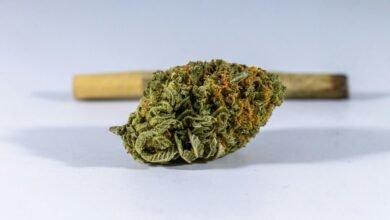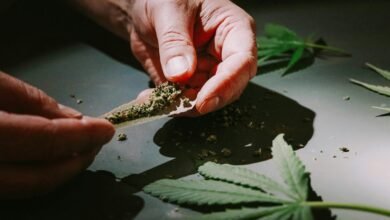Will Cbd Pop up on a Drug Test

The potential for CBD to appear on a drug test largely hinges on its composition, particularly the presence of THC. Drug tests primarily target THC metabolites, not CBD itself. Users of full-spectrum CBD products may inadvertently consume trace amounts of THC, increasing the risk of a positive result. Understanding these nuances is essential for anyone concerned about testing. What measures can individuals take to ensure the safety of their CBD use in relation to drug screenings?
Understanding CBD and THC: The Key Differences
While both cannabidiol (CBD) and tetrahydrocannabinol (THC) are cannabinoids derived from the Cannabis sativa plant, they exhibit distinct pharmacological properties and effects on the human body.
CBD is non-psychoactive, primarily influencing cannabinoid profiles related to therapeutic benefits. Conversely, THC is psychoactive, with legal implications varying by jurisdiction.
Understanding these differences is crucial for consumers navigating the evolving landscape of cannabinoid regulations and usage.
How Drug Tests Work: What They Detect
Drug tests are designed to identify the presence of specific substances in an individual's system, typically focusing on metabolites that indicate recent use of drugs or alcohol.
Various drug testing methods, such as urine, blood, and hair tests, possess distinct detection windows. These windows vary based on the substance, frequency of use, and individual metabolism, influencing the likelihood of detection in a test.
The Risk of Contamination: Full-Spectrum vs. Isolate CBD
The presence of THC, the psychoactive compound in cannabis, in full-spectrum CBD products raises concerns regarding contamination and potential positive drug test results.
A thorough risk assessment is essential for consumers, as product labeling may not always accurately reflect THC content.
Isolate CBD products, devoid of THC, offer a lower risk, making them preferable for individuals subject to drug testing.
Best Practices for CBD Users Facing Drug Tests
Understanding the potential risks associated with full-spectrum CBD products is vital for users who may be subjected to drug testing.
To minimize risks, individuals should opt for CBD isolate or broad-spectrum products, verify third-party lab testing results, and maintain transparency about their CBD consumption.
Regularly reviewing employer policies on drug testing can also provide clarity and help users make informed decisions regarding their CBD use.
Conclusion
In a world where CBD is celebrated for its therapeutic benefits, it ironically dances on the precipice of drug test failures. Users seeking relief may unwittingly invite THC's shadow into their lives, highlighting the paradox of full-spectrum products. As they navigate this landscape, the irony lies in the fact that a substance designed to enhance wellness could jeopardize careers and reputations. Thus, for the conscientious consumer, the safest route remains the sterile confines of CBD isolate, devoid of THC's unpredictable influence.






